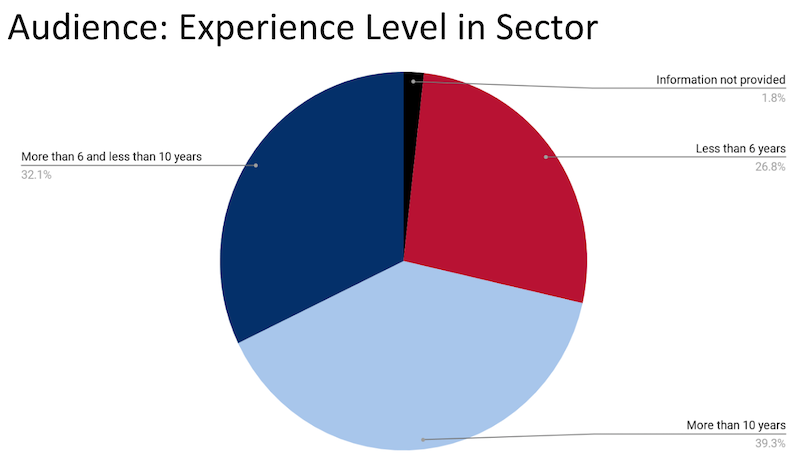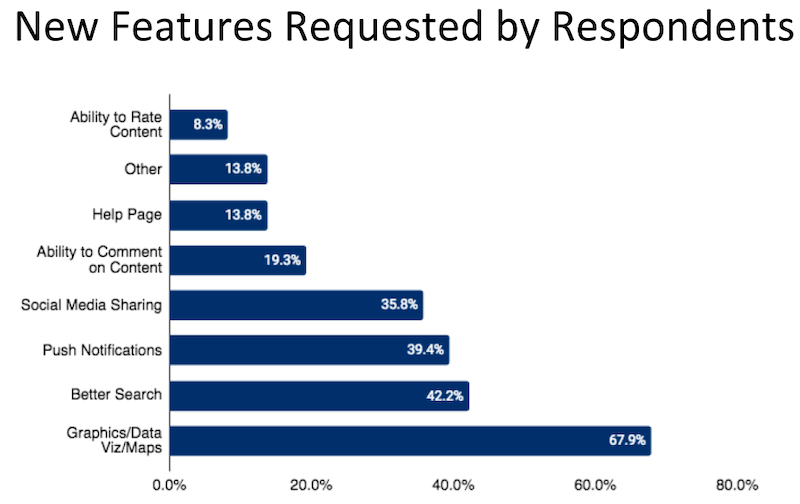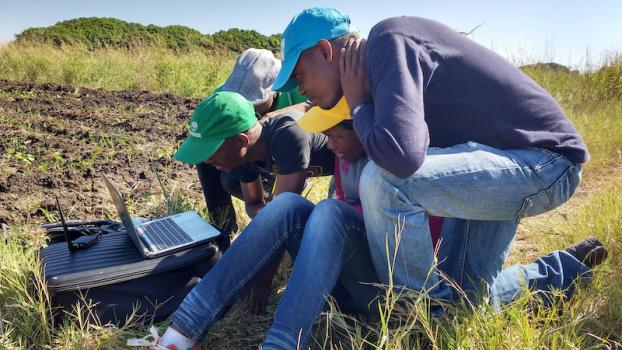We Asked and You Responded: Globalwaters.org Users Provide Feedback
In July 2018, the Globalwaters.org team celebrated the one-year anniversary of the site’s public launch, which has seen Globalwaters.org mature into a knowledge-sharing hub for water, sanitation, and hygiene (WASH) professionals around the world. We took this opportunity to pause and reflect and solicit your thoughts about the site with a voluntary survey: What had we done right in the first year? What resources did users find especially useful? What areas of the site need strengthening in the coming year?
And you responded. The results are now in, and below we share some key takeaways from the survey. (And if you missed your chance to fill out our survey, don’t worry; you can always contact us here with feedback.)
The majority of survey participants (64 percent) report that Globalwaters.org helps them do their jobs better, while 94 percent of respondents say they are either “highly likely,” “very likely,” or “likely” to recommend the site to colleagues. What was your first impression of the site? More than 64 percent said their initial response to Globalwaters.org was “very positive,” and 46 percent described Globalwaters.org as “informative,” with one respondent describing the site as “one-stop information for all USAID WASH activities.”
Others describe the site as “highly interesting for everybody operating in the water, sanitation, and hygiene sectors" and a hub for finding “the latest updates, information, and research available online” and “useful information I can’t find elsewhere.” Some say they are especially drawn to materials related to “recent interesting and relevant projects,” while one user remarked that Globalwaters.org’s technical resources have “thus far helped my organization in executing our projects better.”
Survey participants hailed from 20 countries across Africa, Asia, Europe, the Middle East, and North and South America, with the highest number of participants coming from the United States and USAID high-priority countries such as Kenya, Ethiopia, and Nigeria.
In terms of background and experience, 33 percent of respondents say they are in the early stages of their careers, while 27 percent describe themselves as mid-career, and 40 percent have been working in their fields for 10 years or longer. A large percentage of survey participants work for implementers (71 percent), while 17 percent of respondents work for either USAID (domestically or abroad) or another U.S. government agency.

How often do users visit the site, and what features or resources do they find most important? Seventy percent of survey respondents say they visit Globalwaters.org once a month or more, while 3 percent report daily visits. More than two-thirds of survey respondents say technical resources from USAID are Globalwaters.org’s most valuable assets, while 65 percent come to the site to find out about water-sector news and events, and 57 percent rely on Globalwaters.org to learn more about USAID-supported water programming. Other Globalwaters.org resources that survey respondents specifically say are most relevant to their research and professional interests include collection pages for Upcoming Events; Water Currents newsletter; USAID Countries; USAID Priority Countries; and Global USAID Programs.
In response to user recommendations for strengthening the site in the year ahead and enhancing its usability, the Globalwaters.org team will be improving search functionality; uploading more graphics, maps, and data visualizations; adding social media sharing capabilities; and completing a redesign of the Globalwaters.org homepage.

We invite our users to continue suggesting new content and recommending ways for us to further strengthen and refine the site. We look forward to drawing on your feedback to make Globalwaters.org an even more valuable resource.
By Nina Ebensperger and Russell Sticklor, USAID’s Water CKM Project


